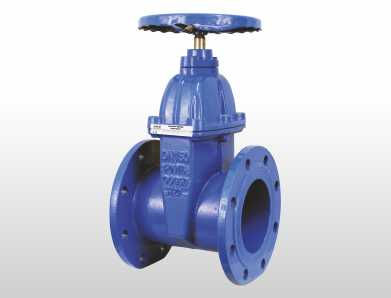Unveiling the Advancements in Materials Used by High Pressure Valve Manufacturers
- Aira Euro Automation
- Jun 24, 2023
- 3 min read
High pressure valves play a crucial role in various industries where the safe and efficient control of fluid flow is paramount. Over the years, advancements in materials used by high pressure valve manufacturers have significantly contributed to enhancing their performance, reliability, and longevity. In this article, we will explore the cutting-edge materials that are revolutionizing the high pressure valve industry, ensuring better functionality and meeting the demanding requirements of modern applications.
High pressure valves are vital components in industries such as oil and gas, chemical processing, power generation, and water treatment. They are responsible for regulating the flow of fluids under extreme pressure conditions. In recent years, manufacturers have been exploring new materials to enhance the performance, durability, and efficiency of high pressure valves.
Historically, high pressure valves were predominantly made from materials such as stainless steel, cast iron, and bronze. While these materials offered decent performance, they had limitations in terms of corrosion resistance, wear resistance, and strength. As industries evolved and faced more demanding operating conditions, the need for advanced materials became apparent.

Advancements in Material Science
Alloy-Based Materials
Alloy-based materials have gained significant traction in the high pressure valve manufacturing industry. Materials like nickel-based alloys, titanium alloys, and superalloys exhibit excellent resistance to corrosion, high temperature, and pressure. These alloys are known for their exceptional mechanical properties, making them ideal for challenging environments.
Ceramic Materials
Ceramic materials have revolutionized the high pressure valve industry due to their exceptional hardness, wear resistance, and resistance to corrosive fluids. Advanced ceramics such as alumina, zirconia, and silicon carbide offer superior performance even in extreme conditions. These materials provide excellent dimensional stability and prolonged valve life.
Composite Materials
Composite materials, consisting of a combination of polymers and reinforcing fibers, have emerged as a viable option for high pressure valve construction. These materials offer a unique blend of properties, including high strength, lightweight, and excellent corrosion resistance. Composite valves can withstand harsh environments while minimizing energy consumption and reducing maintenance costs.
Benefits of Advanced Materials
The utilization of advanced materials in high pressure valves brings forth several benefits. Firstly, improved corrosion resistance ensures longer service life and reduced maintenance requirements. Secondly, enhanced mechanical properties enable valves to withstand higher pressures and temperatures, contributing to overall system reliability. Thirdly, the use of lightweight materials reduces energy consumption and facilitates easier installation and operation.
Challenges and Considerations
While advanced materials offer numerous advantages, their implementation in high pressure valve manufacturing is not without challenges. One key consideration is the cost associated with these materials, as they can be more expensive than traditional options. Additionally, specialized manufacturing processes and expertise are required to work with advanced materials effectively. Proper quality control and testing procedures are vital to ensure the integrity and performance of valves.
Future Outlook
The advancements in materials used by high pressure valve manufacturers are expected to continue at a rapid pace. Research and development efforts focus on further improving the performance of existing materials and exploring novel materials with even better properties. Future high pressure valves are likely to feature materials tailored for specific applications, ensuring optimal performance, durability, and reliability.
Conclusion
The advancements in materials used by high pressure valve manufacturers have revolutionized the industry, enabling valves to operate under extreme conditions with enhanced performance and reliability. Alloy-based materials, ceramic materials, and composite materials have emerged as the frontrunners, offering superior corrosion resistance, mechanical strength, and durability. As industries evolve, the adoption of advanced materials in high pressure valves will continue to drive innovation and shape the future of fluid control systems.


Comments